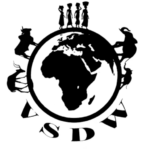
South Africa – Rhino Connect Veterinary Student Program
Embark on an unforgettable 12 day journey with Rhino Connect, designed for aspiring wildlife veterinary students. Set against the stunning backdrop of the South African bushveld, our program offers a unique blend of knowledge and hands-on experience in wildlife veterinary work. Dive into key aspects of wildlife veterinary medicine, from darting techniques to critical care and treatment of large African animals. Gain a comprehensive understanding of the challenges faced by African conservationists and how to effectively contribute to these efforts. This program not only builds a solid foundation for your future in this specialized field but also boosts your confidence to make a meaningful impact in wildlife conservation globally. Join us for an inspiring and empowering adventure that prepares you to excel in the exciting world of wildlife veterinary medicine.
- Duration
- 12 days
- Cost
- pricing on request
- Group size
- 10-12 people (generally compromise students from the same university)
- individual bookings (check more information)
- Availability
- up to 2 groups per month (check availabilities on their website under ‘bookings’
What you can expect
Explore Wildlife Veterinary Medicine in Our Dynamic 12Day Program
The Veterinary Program will include most of the following experiences but please remember that wildlife veterinary work and conservation is not a controlled environment and each trip is unique. The range of activities and wildlife experiences may vary depending on the circumstances during the specific program that you attend. However, we promise to provide you with an action-packed, adventure-filled program.
- Bushveld Braai experiences.
- Rhino Milk Feed
- Rhino Information Talk and Activities.
- Rhino Repo Site and Laboratory visit – including Embryo and Reproduction talk and semen collection.
- Elephant Adventures day tour.
- Pilanesberg National Park day tour (optional).
- Hartbeespoort dam day visit to the Chamelon Village (optional).
- K9 Anti-Poaching and wildlife farm introduction.
- Rhino Horn Trimmings.
- Rhino Sanctuary work.
- Wildlife darting
- Wildlife relocations (where possible).
- Wildlife experiences.
- Informative talks and experiences on wildlife conservation.
- Contributing to wildlife conservation.
- Workshirts, water bottles and other goodies.
- Shopping trips and experiences.
- Game drives
How will you benefit?
- Foundational Expertise: Gain vital knowledge, skills, and expertise in wildlife conservation, equipping you for a sustainable future in this field.
- Discover South Africa’s Splendor: Experience the breathtaking landscapes and diverse ecosystems of South Africa, providing an unparalleled natural classroom.
- Confidence with Large Animals: Build confidence in handling and understanding large African wildlife, a unique and valuable skill.
- Introduction to Wildlife Medicine: Introduction to various techniques in wildlife medicine, including diagnostics, treatment, and rehabilitation.
- Conservation Field Experience: Gain firsthand experience in African conservation efforts, emphasizing the importance of preserving wildlife habitats.
- Networking Opportunities: Connect with professionals and experts in the field, expanding your professional network.
- Exposure to Unique Health Challenges: Learn about specific health challenges in wildlife.
- Problem-Solving Skills: Enhance your problem-solving and critical thinking abilities through real-life conservation scenarios.
- Awareness of Wildlife Behaviour and Ecology: Gain an introductory understanding of wildlife behavior, ecology, and population dynamics.
- Research Insight: Discover research opportunities in wildlife medicine and conservation, broadening your academic horizons.
- Resume Enhancement: Improve your resume and future job prospects in fields related to veterinary medicine, wildlife medicine, or conservation.
- Experience with Unique Cases: Get exposure to managing unique cases such as wildlife trauma or care for orphaned wildlife.
- Conservation Awareness: Learn about the impact of human activities on wildlife populations and the role of veterinarians in conservation efforts.
check an example program on their site!





